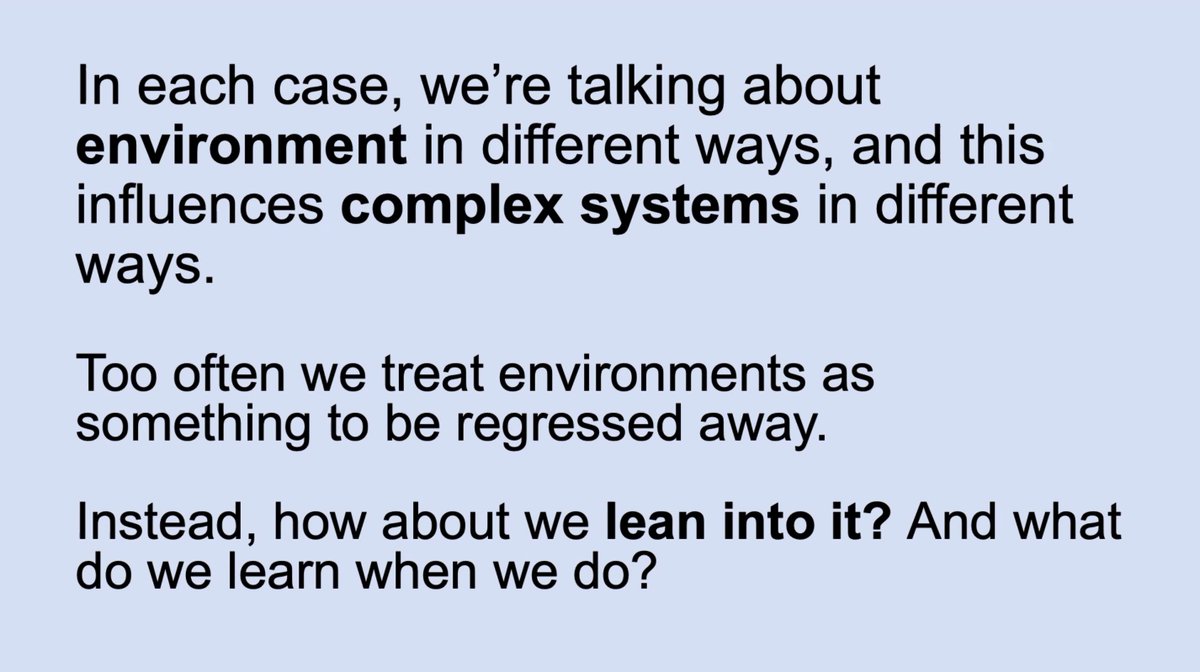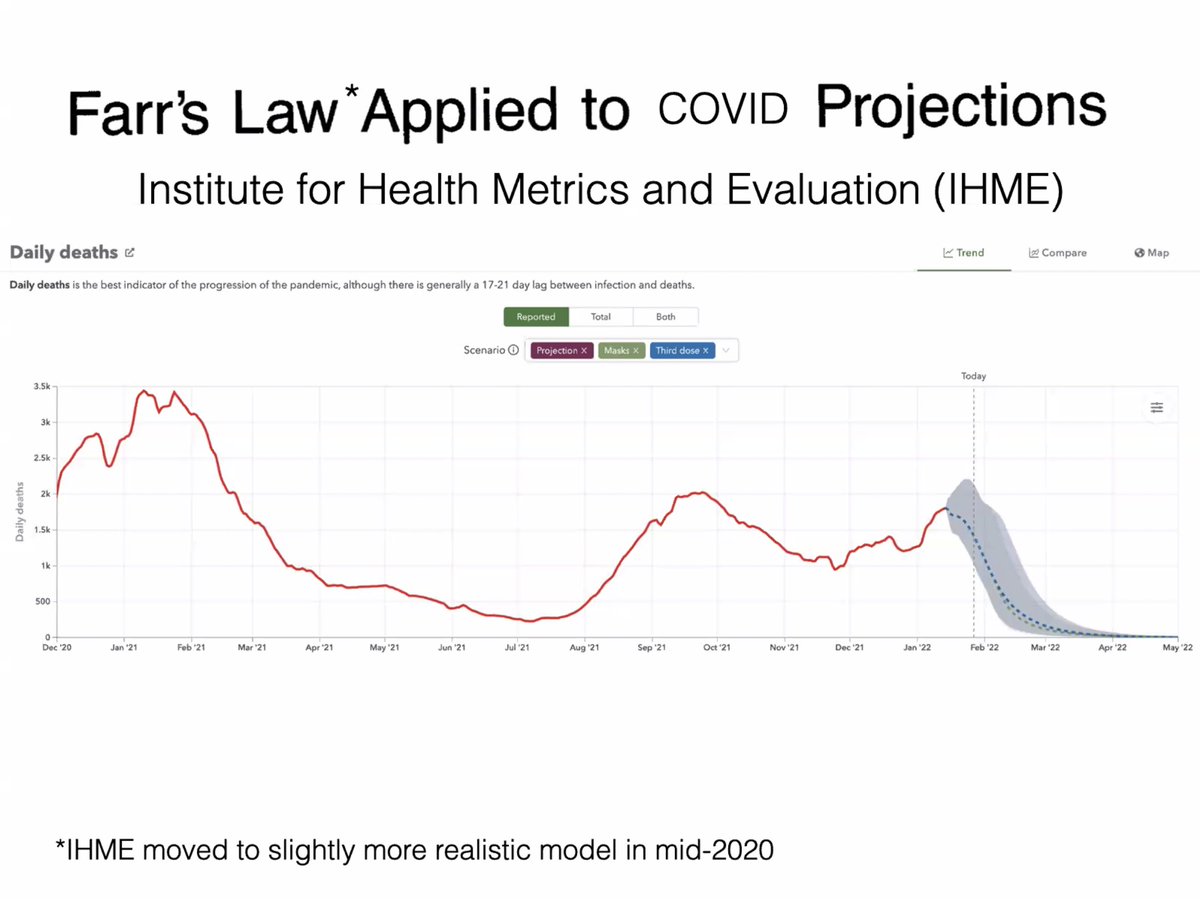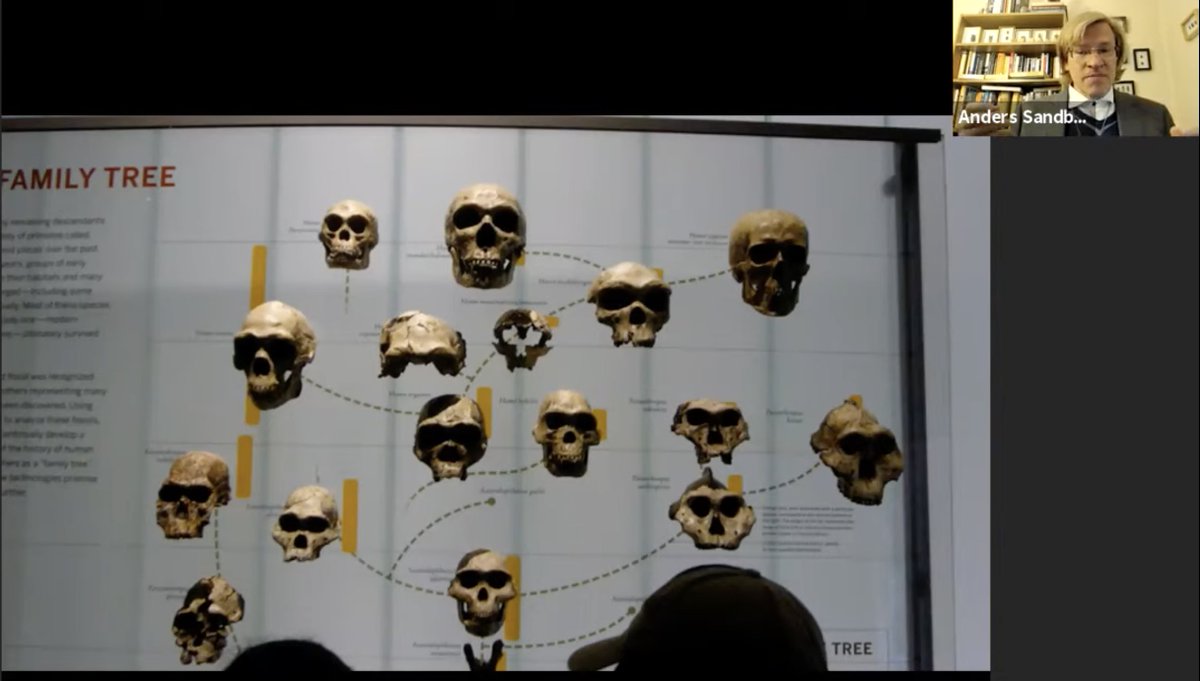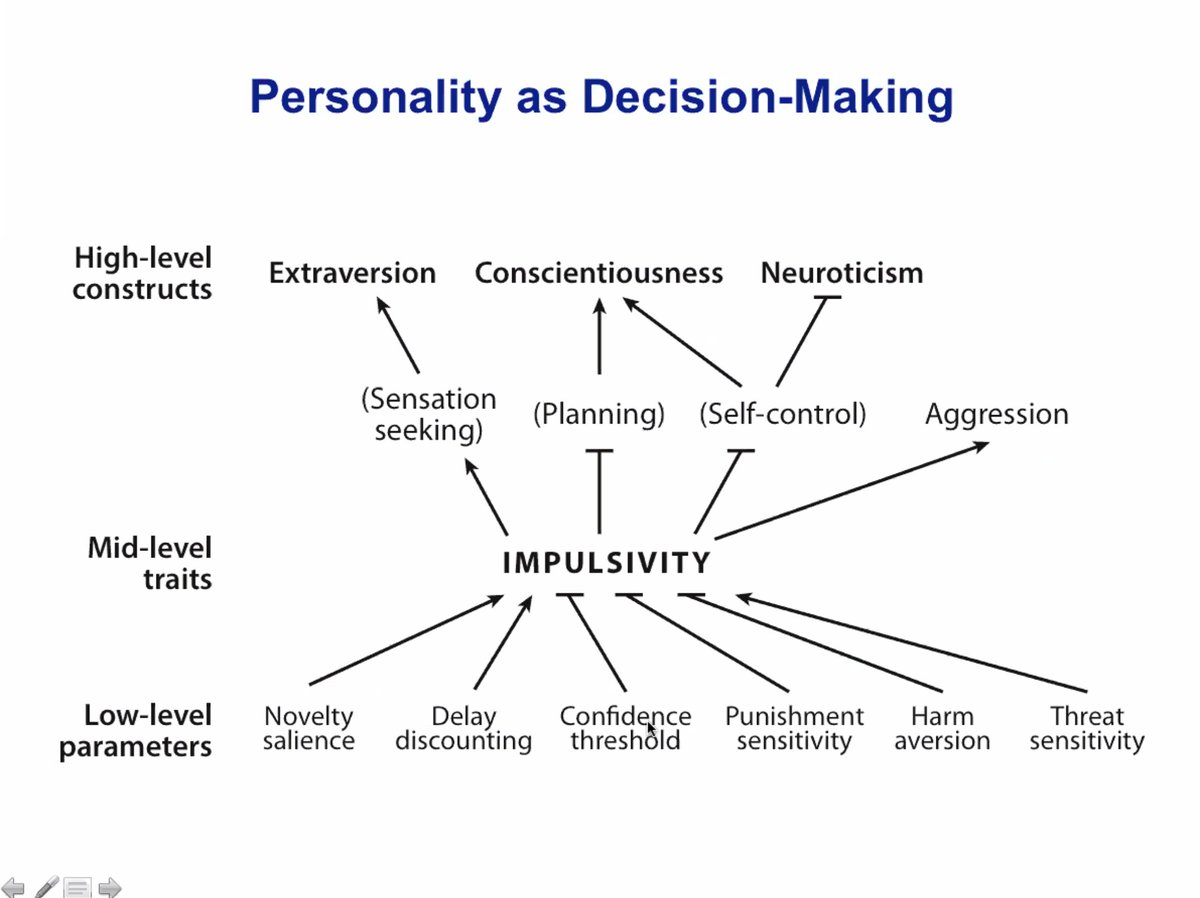
"Environment x everything interactions: From evolution to epidemics and beyond"
Today's SFI Colloquium by @big_data_kane (@Yale), streaming now:
🔍 Follow this thread for highlights...
Today's SFI Colloquium by @big_data_kane (@Yale), streaming now:
🔍 Follow this thread for highlights...

"Part of what we're going to exploit is the multiple definitions behind something [as fundamental as] 'environment' ... in SOME ways, you don't care much about the thing you're looking at; you care about its EFFECT."
- @big_data_kane (@Yale) speaking now:




- @big_data_kane (@Yale) speaking now:




"The environment is an actor and a character in all of our stories. But too often we treat it as something to be regressed away. I joke: 'Find me a piece of DNA that behaves without interaction with its environment.'"
- @big_data_kane (@Yale) speaking now:


- @big_data_kane (@Yale) speaking now:


"You should be a historian of your own field."
- @big_data_kane (@Yale) speaking now on John Maynard Smith and his (largely non-mathematical) rebuttal to creationist Frank Salisbury, which reinforced the incremental aspects of evolution:




- @big_data_kane (@Yale) speaking now on John Maynard Smith and his (largely non-mathematical) rebuttal to creationist Frank Salisbury, which reinforced the incremental aspects of evolution:




Word games as an analogy for protein evolution:
"'Making sense' in this case means the protein is able to perform its function. Context & environments shape what is meaningful & accessible."
- @big_data_kane (@Yale) on networks & sensibility:




"'Making sense' in this case means the protein is able to perform its function. Context & environments shape what is meaningful & accessible."
- @big_data_kane (@Yale) on networks & sensibility:




"Each individual letter flip hits a genetic background, and which letter flip defines if that's a functional mutation or not. [This is] epistasis: 'the *surprise* at the phenotype' when mutations are combined' [from DW Heinrich]."
- @big_data_kane (@Yale):




- @big_data_kane (@Yale):




"What is the effect of a letter flip *on average* against the background of its environment [in this case, different drug concentrations]?"
- @big_data_kane (@Yale) on evolution, information, and #surprise at the level of protein evolution:
#Omicron

- @big_data_kane (@Yale) on evolution, information, and #surprise at the level of protein evolution:
#Omicron


"The most important person in my scientific autobiography was my football coach Al — the first person to teach me that you can catch a transmissible disease from your environment."
- @big_data_kane (@Yale) on then vs. now:




- @big_data_kane (@Yale) on then vs. now:




"You build a model in which the entire world is made of a different type of surface...we did this and [with the same pathogen] in each you get an *entirely different* pandemic."
- @big_data_kane (@Yale) speaking at SFI now:



- @big_data_kane (@Yale) speaking at SFI now:



"Part of the motivation for me thinking about the environment: I was raised by somebody much more intelligent than me who DIDN'T get the opportunity to wear tweed and talk to fancy people ... So I tell stories."
- @big_data_kane (@Yale) speaking at SFI:




- @big_data_kane (@Yale) speaking at SFI:




"When you put a system that's already biased under stress? It gets worse. When you put courts under lockdown, more people push for plea deals. Some people were not able to work from home [during COVID] so you get an increase in police interactions..."
- @big_data_kane (@Yale)
- @big_data_kane (@Yale)

• • •
Missing some Tweet in this thread? You can try to
force a refresh
































